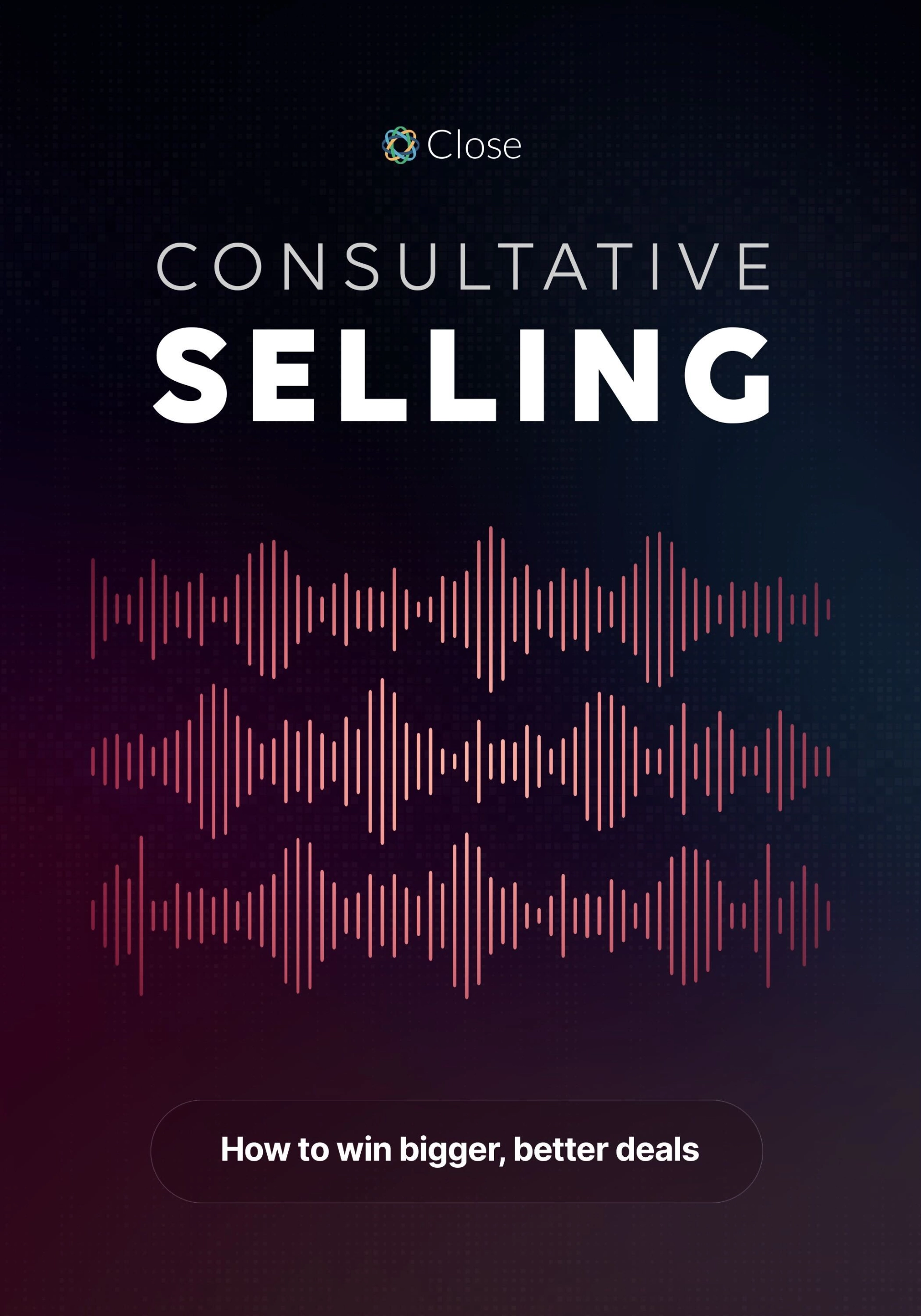“If there’s a sales person involved in the sales process, there is typically some level of expertise that should go into that conversation. Consultative selling is about understanding your buyer’s goals, diagnosing their pain points, and acting as a trusted advisor—not just a product rep.”
This is a simple and clear description of consultative sales in the real world, according to Sr. Account Executive of Close James Urie.
Curious about consultative selling? Ask yourself: is my presence in the sales process adding value to my customers?
If your sales conversations genuinely add value, you’re already applying consultative sales principles—you just need to refine them.
We’re about to dive into exactly what it takes to become a consultative salesperson, and how to implement these strategies into your daily sales workflow.
If you want to start out with the basics, we’ll cover what you need to know:
- What is consultative selling?
- How the consultative selling model works
- Pros & cons of consultative selling
What is Consultative Selling? (Definition + Example)
The term "consultative selling" was originally coined in 1970, but over time this method has adapted and grown to become a highly effective way of selling, even more than 50 years later.
To define consultative selling, think of what a consultant does. They work alongside a company, discuss challenges and goals, and act as another member of the team working together to reach a set result.
In many ways, consultative selling turns salespeople into active consultants for their customers.
Consultative sellers work alongside customers as trusted partners, uncovering root problems and aligning solutions with measurable outcomes. Their focus is on bringing real results to their customers, not just selling a product or service.
How the Consultative Selling Model Works (Step-by-Step)
In general terms, the consultative sales methodology follows the same process as a consultant would when working with a client. When applied to the sales process, it could look something like this:
First, the sales rep asks good discovery questions to find the root of key challenges. They’ll talk to their point of contact, and probably others on the team to discuss the main issues and find out what’s really causing them.
Next, the consultative selling model emphasizes collaboration—building a solution together that fits the buyer’s specific goals and constraints. This involves more than just doing a product demo or giving a sales pitch—it involves developing a process and plan to work towards goals and see real results.
As they develop a solution, a consultative seller also provides context, ideas, and insights into top industry trends. To be successful with this sales model, the rep must be an authority that the customer can respect and trust (i.e., a consultant).
Finally, the seller closes the deal by giving real proof of the results. This might include providing social proof, giving a clear product demo that proves the value of the product for this particular customer, or offering a free trial period to let the prospect experience the benefits of the solution first hand.
Consultative Selling: Pros, Cons, and When to Use It
After 50 years, the consultative sales methodology must be doing something right! Here’s what you can expect when using it (the good and the bad):
Benefits of consultative selling:
- Increased trust in your brand: With your sellers acting as authorities in the field, they’ll increase the confidence that customers have in your brand and company.
- Better alignment to the buyer journey and needs: When the whole sales team is focused on the customer, you’ll be able to build a smoother sales process that aligns with what the customers actually want and need (not what you think they need).
- Increased close rates, upsells, and cross selling: Consultative sellers convince buyers based on real value. Plus, they may surface unexpected needs when digging into the real root of the customer’s problems. This, when done authentically, results in more closed-won deals and revenue.
Drawbacks of consultative selling:
- Takes longer for junior reps to get up to speed: There is no replacement for experience. Since consultative selling requires reps to be industry experts, it will be harder for junior reps to get started. However, there is a simple hack for junior reps to start doing consultative selling from day 1, even when they don't yet have all the answers.
- Saying no to some customers: Consultative sales reps focus on what’s best for the customer, and in some cases that means telling them your product isn’t a good fit. In the short term, this will result in some lost business, but in the long term it will increase trust in your brand and focus your customer base to the people who can really succeed with your product, and drive sustainable revenue.
How to Master Consultative Selling in Your Workflow
Thinking that consultative sales is the right model for your team? If you’re interested in helping customers succeed and have a team of industry experts ready to share their knowledge and close high-value deals, then get ready: we’re about to drop a load of consultative selling wisdom.
This guide was built to help your team master consultative selling. Learn how the process works, what skills your team will need, examples you can follow, and more. Jump to Chapter 1 to get started.












